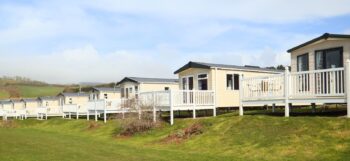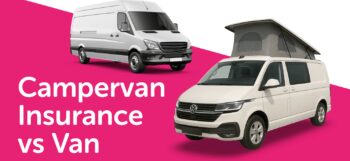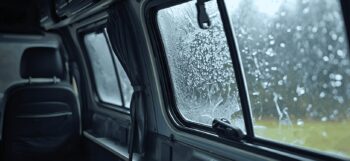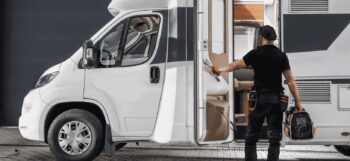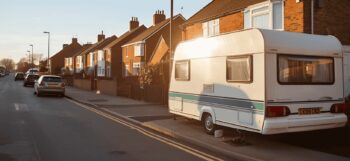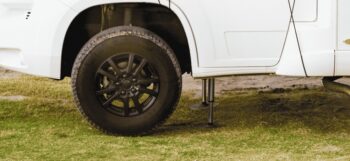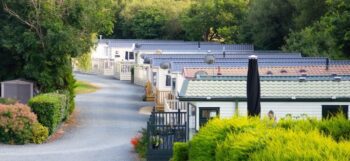If you are buying your first mobile home, (although they tend not to be that mobile!), also known as a static caravan, there are several things that need to be considered.
Just like buying new and second hand cars the prices can vary hugely between the two, but then so can the condition of the caravan. Some pre-owned static caravans will have been looked after by their current owners to the extent that they are just like new. Many owners treat their static caravans as if they were their homes and will have spent a lot of time and money on them.
VAT
As from 1st April 2013 there is 5% VAT to pay on all purchases of mobile homes as the Government closed a loophole in the legislation. Prior to this date you only needed to pay VAT on the ‘removable items’ - for example, the fridge, television and anything that was not fixed.
What are the costs involved?
There are quite a few costs involved in buying a static caravan and some of these are dependent on whether you purchase a new caravan or pre-owned one. If the home is new, you need to ask if the purchase price includes transporting the van on to the site; the site commission - a premium usually added by the site for them handling the purchase; site fees for the pitch; and connection to the electric and gas.
If it is a second hand mobile home, the above costs may already be included in the purchase price especially if you are buying one through a site and it does not need to be moved to another pitch.
Ask your holiday park owners how long you are allowed to keep a home on their site before you need to replace it. For some there is no age limit on the caravan, for others it is a maximum of 15 years. Obviously, whilst this seems like a long time, are you happy to spend another substantial amount of money replacing it in a few years time. A pre-owned caravan will only have the balance of years left on the lease, for example, if you purchase a 3 year old caravan, you may only be allowed to keep it on site for another 12 years. Also check when the ‘birthday’ of your caravan falls, as you do not necessarily want to buy a new caravan in November for it to become 1 year old on 1st January.
You will wish to bear in mind that you do not own the land that your static caravan is situated on, you are leasing it from the holiday park owners.
Where will you be siting your new static caravan?
This is possibly one of the most important considerations. If you have already chosen a mobile home park, and there are hundreds to choose from, then you are probably aware of the facilities that they offer. If not, you need to consider what facilities you want or require.
Will your current requirements be the same as those in 10 years time? Consider how your circumstances may change - children not holidaying with you; grandchildren old enough to be away with you.
If you want peace and quiet, then it might not be appropriate to choose a site that has a swimming pool, numerous children’s play areas or night time entertainment as these will attract families with children.
Do you prefer a site that is in a rural area, or would a coastal location with views be better?
Do you require there to be a shop on site as some sites can be several miles away from the nearest town or village - not very convenient if you like a newspaper every morning.
Flooding
Unfortunately over the last couple of years we have seen an increase in flooding across the UK and this has obviously affected holiday parks. All insurance companies will ask you if there is a history of flooding or storm damage at the park where you site your static, so asking the site owner for a history of the site would be advisable.
You can also carry out your own checks if you want to be sure - after all your caravan will cost you a lot of money and you can't really put a price on peace of mind.
In England, the government website has flood maps where you can put in your site postcode.
In Wales, Natural Resources Wales have a similar website where you can zoom in and out of a map to see if there is a danger of flooding.
The Scottish Environment Protection Agency (SEPA) also have a postcode search facility.
The Department of Agriculture and Rural Development in Northern Ireland have an interactive map that can be searched.
Any other considerations?
Do you think that you would like to sub-let your van to bring in some income whilst you are not using it? - not all sites allow sub-letting and only allow family and friends to stay.
Do you own a dog? - again, not all holiday parks allow dogs, although this can be good news for many people. Conversely, some only allow dogs and not other types of pets.
Have you considered when you would like to holiday in your van? - in which case, if you are not intending to use it during the school holidays, a site with entertainment may not be an issue and might make it more attractive for your children and grandchildren to use.
Many holiday parks also close down during the winter months, partly due to the weather and also to allow them to carry out essential maintenance around the site. This also stops static caravan owners from using their vans all year round and therefore making them into residential parks.
What amenities does the site offer? Is there plumbed in gas and electric?
With the increasing costs of petrol and diesel, it is worth considering how much it is going to cost you to travel to and from the holiday park. If you have to travel for several hours to get there, are you going to want to do so next year and therefore perhaps a park closer to home might a more affordable option.
What is the difference between mobile home parks, static caravan sites and residential parks?
Mobile home parks, static caravan sites or holiday parks are usually open for a maximum of 9 - 10 months of the year and are just that. You cannot live permanently on them, some may have restrictions as to how much time you can spend there in one go.
Residential parks are open all year round and you can live there permanently in a purpose built home. They do not usually allow static caravans or mobile homes to be lived in.
The main reason for the difference is due to the licensing of the premises by the local Council and the different regulations in force. If you are unsure as to what type of licence the site owner has, you can ask to see it.
Additional costs after purchase
The majority of static caravans are bought as seen, although many sites will allow a handing over period so that the new owner can check for any faults not previously discovered, but it is worth asking if this is included.
Although not compulsory, insurance for your holiday park property is essential and many sites will insist on it as a condition of purchase. There is no such thing as too much insurance cover.
Do you want to add decking to your caravan? Your site will be able to recommend installers to you and this can add around £7000 to the purchase price. It might be more cost effective to have a patio built instead which will not need to be replaced if and when you change your caravan. Decking, unfortunately, like your new caravan does have a finite life.
Does your new site charge annual fees? These may vary from pitch to pitch within the same site, depending on the position of your caravan. These fees usually cover the upkeep of the park and the shared facilities and amenities.
How do you pay for gas, electric, water and sewerage? Is each pitch metered individually? Some holiday parks will send you one bill at the end of the season while others may invoice you quarterly.
You will need to purchase an additional television licence if one or more persons at your main residential address stay at home whilst you are away at the van, for example, if you leave the children at home whilst you go away. If your entire household uses the caravan at the same time, you are covered under your current licence.
Every year there will be some maintenance of the caravan that will need to be carried out. It is quite common for sites to insist, as part of their terms and conditions, that you must have the boiler serviced every year. This is obviously sensible and may also be a requirement for your insurance as well. If your holiday park closes every winter you may be required to not only turn off the gas and electric, but also drain down the water to stop any residual water in the system freezing and subsequently bursting pipes. There may be a re-connection fee for this every Spring for this service.
No doubt you will need (and want) to purchase lots of lovely new things for your mobile home including crockery, cutlery and bed linen - the list is almost endless, but it can be a good opportunity to relocate some of the additional clutter that has accumulated over the years at home.
Depending on your age, and especially if you think that your family may want to take over the ownership of the caravan from you in future years it is worth considering putting one of them as a joint owner. This would mean that should you not decide to continue on with the ownership, they could take it over from you with little or no financial penalty as some parks will charge for the transfer. Alternatively, a gift of the caravan could be included in your will. Your caravan is an expensive purchase and should not be excluded from your affairs.
The good news!
The good news is that you do not have to pay Council Tax on mobile homes.
Whilst the weather in the UK can be a little unpredictable, there is nowhere better to spend time than a fully stocked caravan - and there have been times recently that the temperatures in the UK have rivaled those in the Mediterranean.
One of the main attractions of owning your own caravan is that you can visit and stay there at any time throughout the season - no more sitting around in airport lounges waiting for delayed flights. Taking into consideration the time it takes to travel to many popular European holiday destinations, you will be settled in with your feet up, without the stress, in a much shorter time.
As a owner you can also leave clothes, bedding, toiletries and food at your static caravan, meaning that you will not need to spend so much time packing and unpacking, and you do not have to worry about leaving anything behind.
Static caravan ownership can be very rewarding and whilst the initial costs can be high, many of them do not need to paid again until the time comes for you to replace it, hopefully many years down the line.
Whilst this list is comprehensive, it is not exhaustive and is purely intended as a guide for new owners on what will hopefully be a long and happy journey in owning a static caravan.
If you found this article useful or have any suggestions or questions, please leave a comment below.
Lifesure are specialist static home insurance providers. Call us on 01480 402460 to speak to our friendly, knowledgeable staff.


